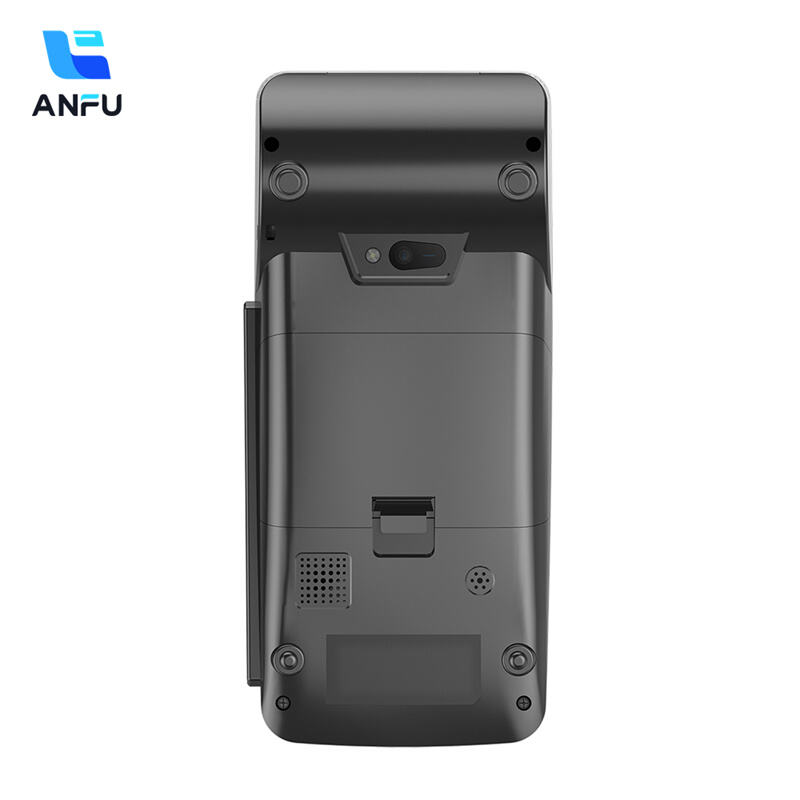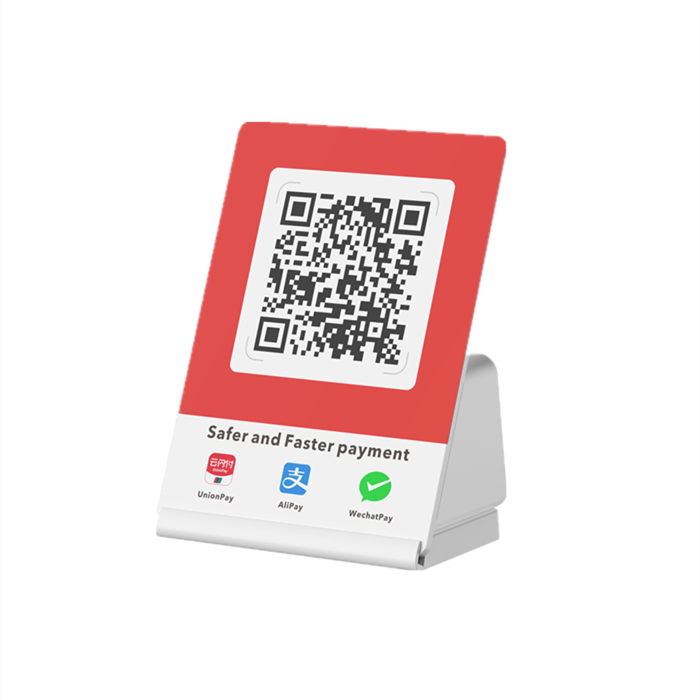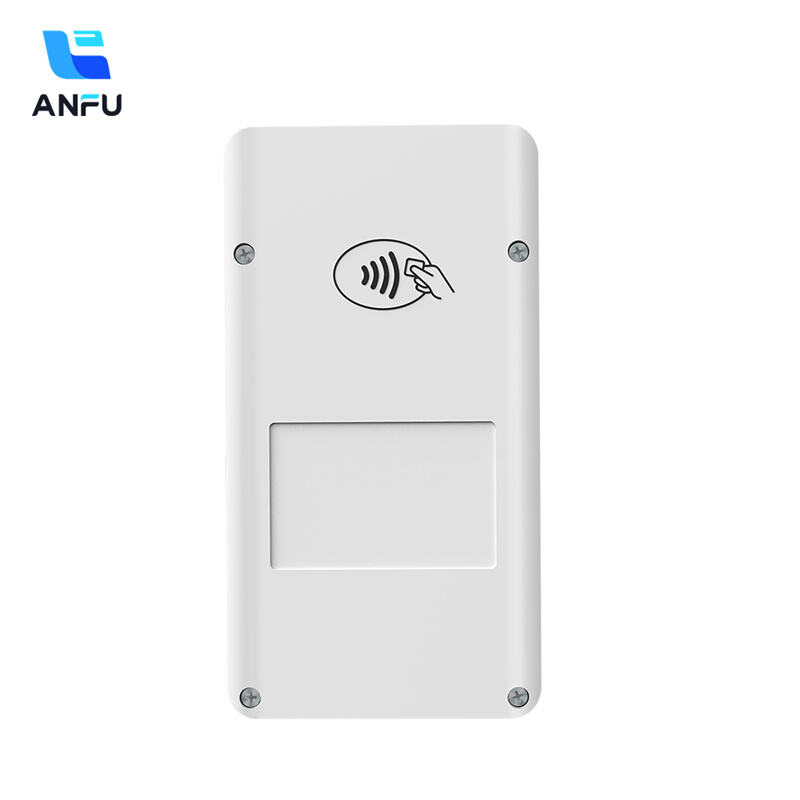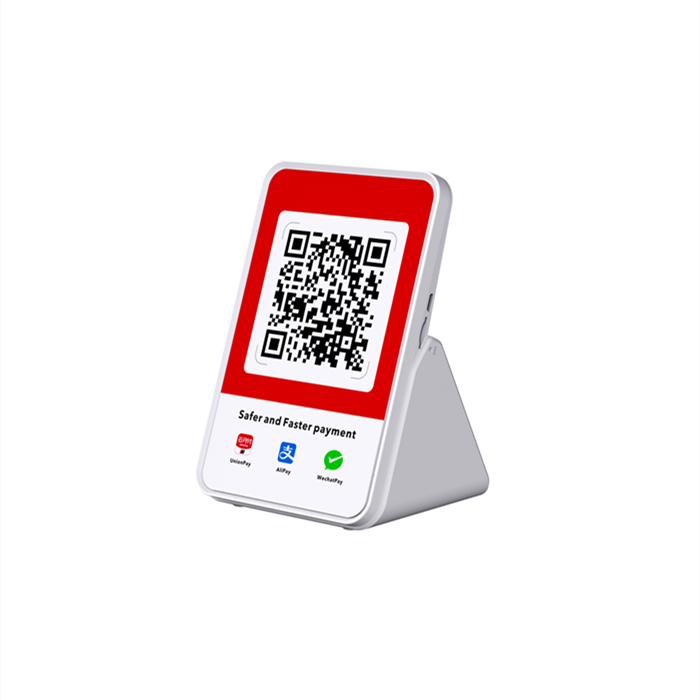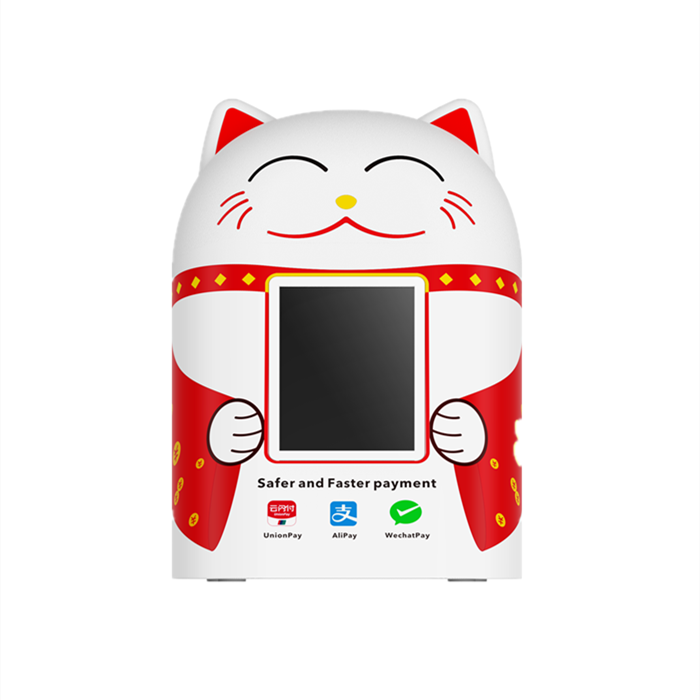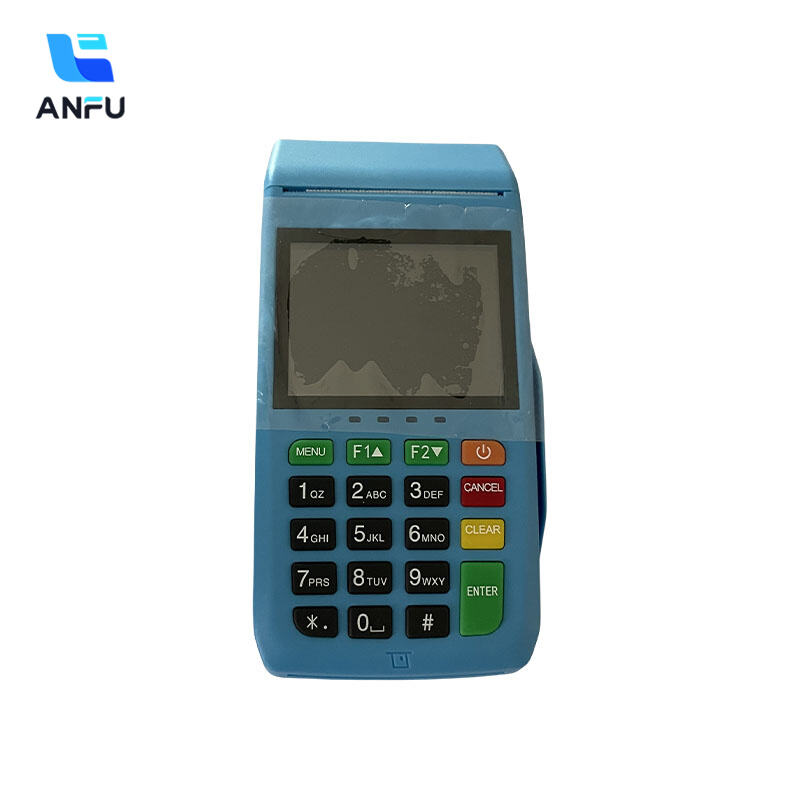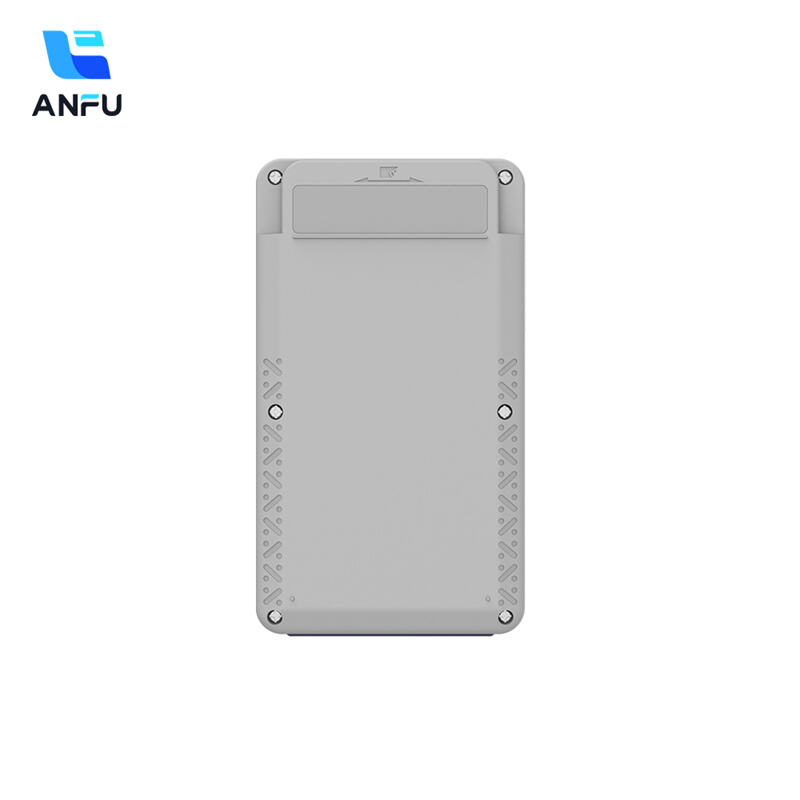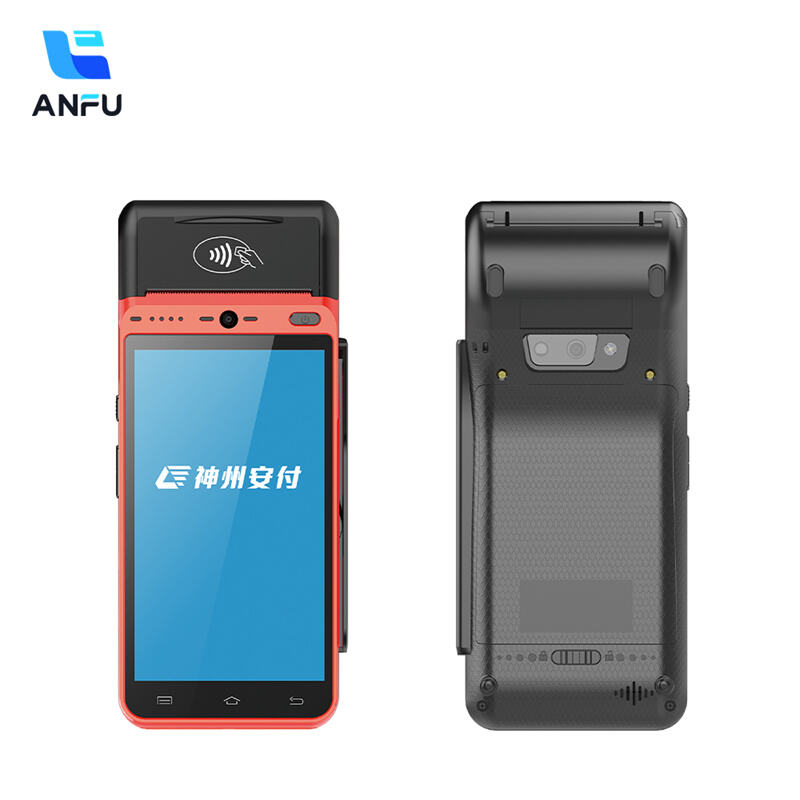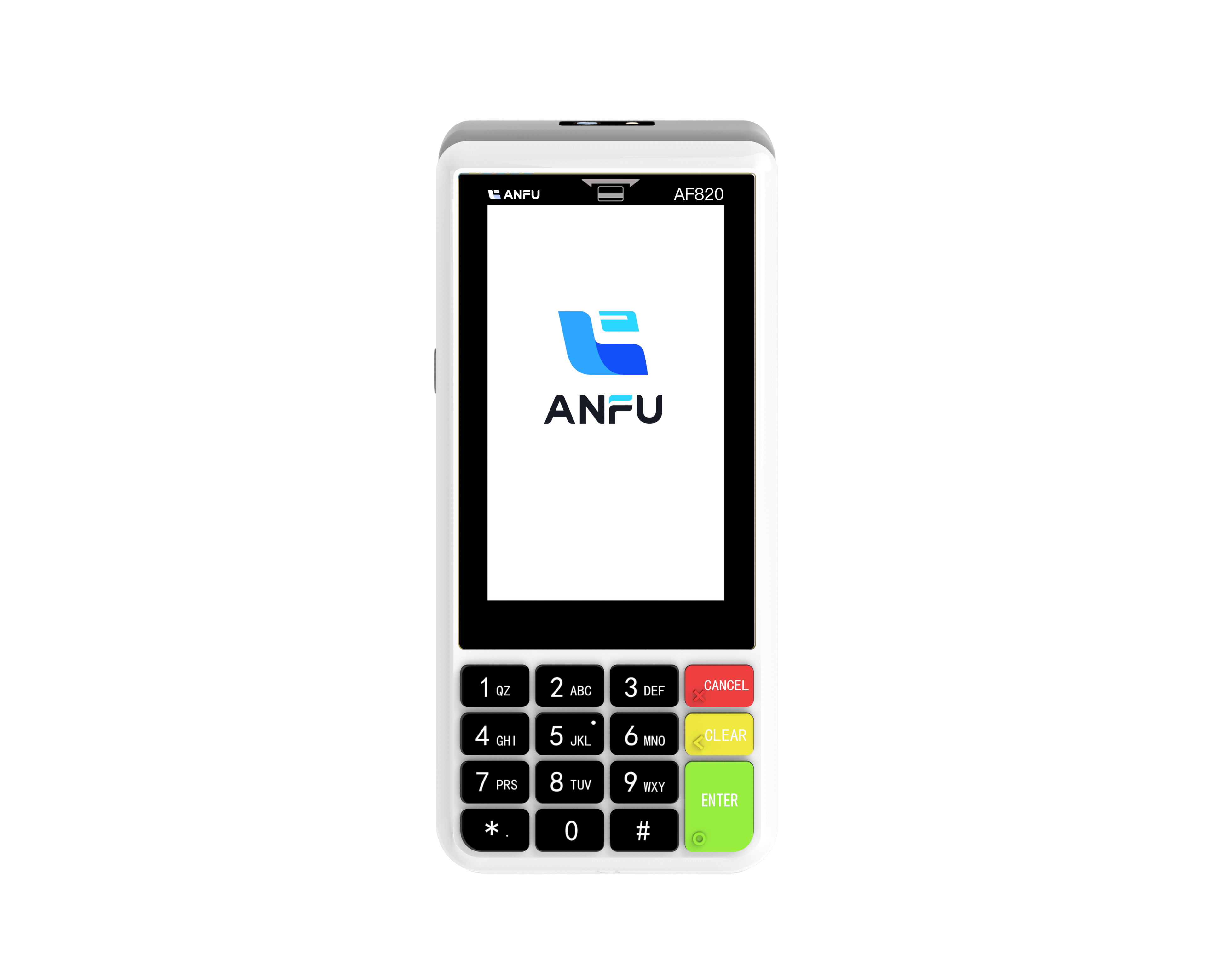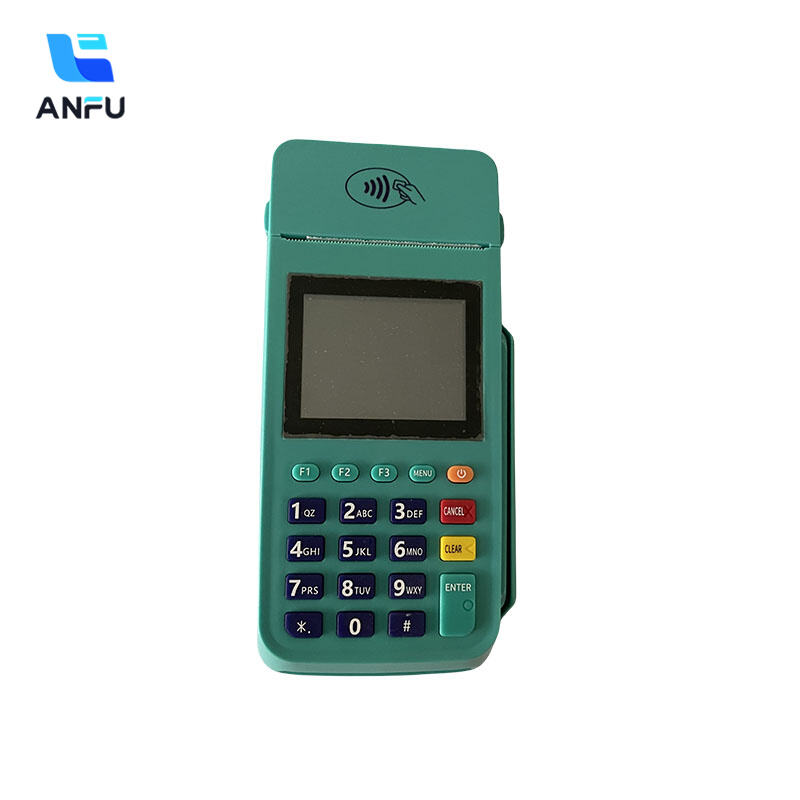Multifunctional POS: Solve Diverse Business Needs Easily
What Makes a POS System Truly Multifunctional?
Smart POS Terminals: From Handheld to Mini Machines
Smart POS terminals have come a long way since they were just simple card readers. Now we see these devices as compact handheld units or small countertop machines that can do so much more than before. The real game changer is how mobile they've become, letting merchants take payments anywhere inside their stores or even outside at events. Take food truck operators for example who rely heavily on portable POS systems to handle transactions while parked at different locations throughout the day. Same goes for vendors selling merchandise at festivals or concerts where traditional checkout counters aren't practical. According to recent data, companies that switched to smart POS solutions saw sales jump around 30% in many cases. Customers appreciate not having to wait in line or deal with awkward payment situations, which makes sense why businesses are seeing better results overall.
Unified Software for Cloud and Android Platforms
Modern point-of-sale systems rely heavily on unified software that brings together essential functions like tracking sales figures and managing customer information all within one easy-to-use interface. Cloud tech takes this even further, letting business owners check live data from different store locations whenever they need it, which helps them make smarter choices faster. The system works especially well when paired with Android-based hardware since it plays nicely with almost any device out there today, whether it's a tablet sitting at the counter or a smartphone in someone's pocket. Some studies indicate companies that switch to these kinds of integrated platforms typically experience around a 25 percent improvement in how efficiently they run day-to-day operations, making it clear why so many retailers are jumping on board with this approach nowadays.
Integration of Mobile Payment Solutions
Smartphone payments have completely changed how people check out at stores these days. Customers just need their phones to pay, which makes shopping much faster and more convenient overall. When businesses connect with widely used apps such as Apple Pay or Google Wallet, they're basically jumping onto the bandwagon of contactless transactions that's taking off everywhere. The time it takes to complete a purchase drops significantly, meaning fewer frustrated shoppers standing around waiting. Research shows something pretty interesting too – stores that offer mobile payment options tend to see about a 15 percent increase in happy customers. That number alone tells us why so many retailers are making the switch to digital wallets for everyday transactions.
Streamlining Retail and Hospitality Operations
POS systems that do multiple jobs at once have become pretty much necessary for running things smoothly in both retail stores and restaurants. When they handle inventory automatically, store owners save hours every week on counting stock and restocking shelves. The money saved isn't just from time either – wasting less product means real savings too. Many modern systems come with screens that are simple enough for new staff to pick up within minutes, which matters a lot in places like coffee shops during rush hour when mistakes cost money. Looking at actual numbers from businesses that switched over, most see their day-to-day expenses drop somewhere around 15-20%. For small business owners trying to keep everything running without breaking the bank, investing in good POS technology often pays off faster than expected.
Real-Time Inventory Management Across Channels
Having real time inventory tracking makes all the difference when running a business across different channels these days. When companies know exactly what's in stock at any given moment, they can prevent those frustrating situations where shelves are empty or warehouses overflow with excess goods. Accurate inventory records let managers see trends and make smarter decisions about what customers actually want next. According to some market research, businesses that keep their inventory systems sharp tend to see around 15% higher sales figures. That's why so many retailers invest in systems that update automatically across online stores, physical locations, and mobile apps. For anyone trying to run operations smoothly without unnecessary headaches, good inventory control just becomes part of the daily routine.
Enhancing Customer Experience with Contactless Payments
The rise of contactless payments is changing how shops interact with customers day to day. When transactions happen faster and people don't have to touch terminals anymore, it appeals especially to younger shoppers who want things done quickly without hassle. Retailers who give customers multiple ways to pay tend to keep those customers coming back more often than those stuck with just cash registers. Recent numbers show around 60 percent of shoppers actually look for stores where they can tap and go, showing pretty clearly what most people want now. For restaurants, convenience stores, and even small boutiques, getting on board with contactless tech isn't just about keeping up with trends anymore it's becoming essential for staying competitive in markets where customer expectations evolve fast.
Restaurants: Tableside Ordering & Kitchen Workflow
Tableside ordering through modern point of sale systems gives restaurants a real edge when it comes to serving customers better and making fewer mistakes. When wait staff can place orders right at the table instead of running back and forth to the counter, things just run smoother overall. The error rate drops quite a bit too, which means happier diners in the long run. These systems work hand in hand with kitchen management software so cooks get order details almost instantly after they're placed. Some places report cutting down on how fast tables turn over by about 15 percent since implementing this tech. That kind of improvement makes a world of difference for busy eateries trying to keep up with demand without sacrificing quality service.
Retail: Omnichannel Sales and Stock Control
For retailers, omnichannel strategies let them reach customers wherever they shop, whether online or at physical stores, creating a smoother shopping experience overall. Managing inventory becomes much easier when products are available both digitally and in brick-and-mortar locations, while shoppers tend to interact more with brands that offer this flexibility. Many stores report around a 30% boost in revenue after implementing such approaches, though results can vary depending on market conditions and execution quality. Good inventory tracking also means fewer deep discounts later on, since there's less risk of overstocking items nobody wants. This makes a real difference for small businesses trying to stay competitive without burning through cash on clearance sales just to clear out unsold merchandise.
Service Industries: Mobile POS for On-the-Go Transactions
Mobile point of sale systems are changing how transactions happen across service industries, letting businesses accept payments anywhere beyond their regular storefronts. What makes these systems so useful? They let customers pay right where they receive services, whether that's at home or on site, and support all sorts of different payment types from cash to credit cards. The added flexibility really helps boost sales numbers too. Look at restaurants and hair salons for instance many report seeing around a quarter more transactions after switching to mobile POS setups. For service businesses looking to grow, focusing on convenient payment options isn't just good for customers it actually leads to more money coming in through those extra sales opportunities that would otherwise get lost.
Scalability for Growing Business Demands
For businesses planning to grow and expand down the road, picking a scalable POS system makes all the difference. These kinds of systems handle growing transaction loads pretty well and can support multiple store locations without slowing things down. When looking at options, pay attention to ones with modular components since they let stores upgrade specific parts instead of replacing everything when needs change. According to industry studies, businesses that went with scalable systems saw around 40 percent fewer problems while expanding their operations. That kind of reliability saves headaches when scaling up becomes necessary.
Security Features in Smart Android POS Systems
When picking out a point of sale system, security should be high on the priority list, particularly if we're talking about keeping fraudsters away and preventing data leaks. Most modern Android based POS setups come loaded with solid security stuff these days, including things like full encryption from start to finish which keeps customer info safe from prying eyes. Meeting those PCI DSS requirements too matters a lot for building trust with customers and avoiding headaches down the road with money issues. The numbers back this up pretty well actually industry stats show businesses investing in good security solutions cut their fraud losses somewhere around 70 percent give or take depending on how strictly they follow best practices.
Evaluating Total Cost of Ownership
Looking at the total cost of ownership (TCO) when choosing a POS system makes sense if businesses want to stay within their budgets. TCO covers everything from day one right through to the end of life - things like buying the actual equipment, paying for software licenses, getting technical support, plus those ongoing transaction charges. When companies take the time to really dig into what they'll spend overall, it helps them pick something that fits what they can afford while still meeting future needs. Studies point out that folks who skip this step often end up spending way more money down the road sometimes as much as half again what they originally thought. So taking a good hard look at all these numbers upfront saves headaches later on and keeps finances under control for the long haul.
Recommended Products
Hot News
-
Smart Card 2019
2024-01-23
-
Trustech 2019
2024-01-12
-
Futurecom 2019
2024-01-12
-
Seamless Payments Asia 2020
2024-01-12
-
Seamless Middle East 2022
2024-01-12

 EN
EN
 AR
AR
 BG
BG
 CS
CS
 DA
DA
 NL
NL
 FR
FR
 IT
IT
 JA
JA
 KO
KO
 PL
PL
 PT
PT
 RU
RU
 ES
ES
 TL
TL
 ID
ID
 LT
LT
 UK
UK
 VI
VI
 HU
HU
 MT
MT
 TH
TH
 TR
TR
 FA
FA
 AF
AF
 MS
MS
 MK
MK
 HY
HY
 AZ
AZ
 KA
KA
 BN
BN
 BS
BS
 LO
LO
 MN
MN
 NE
NE
 ZU
ZU
 MY
MY
 KK
KK
 UZ
UZ
 KY
KY
